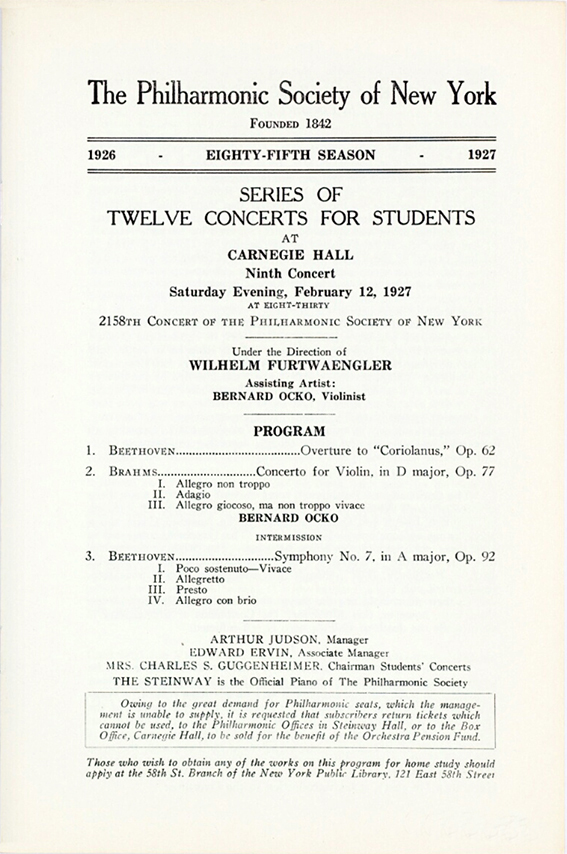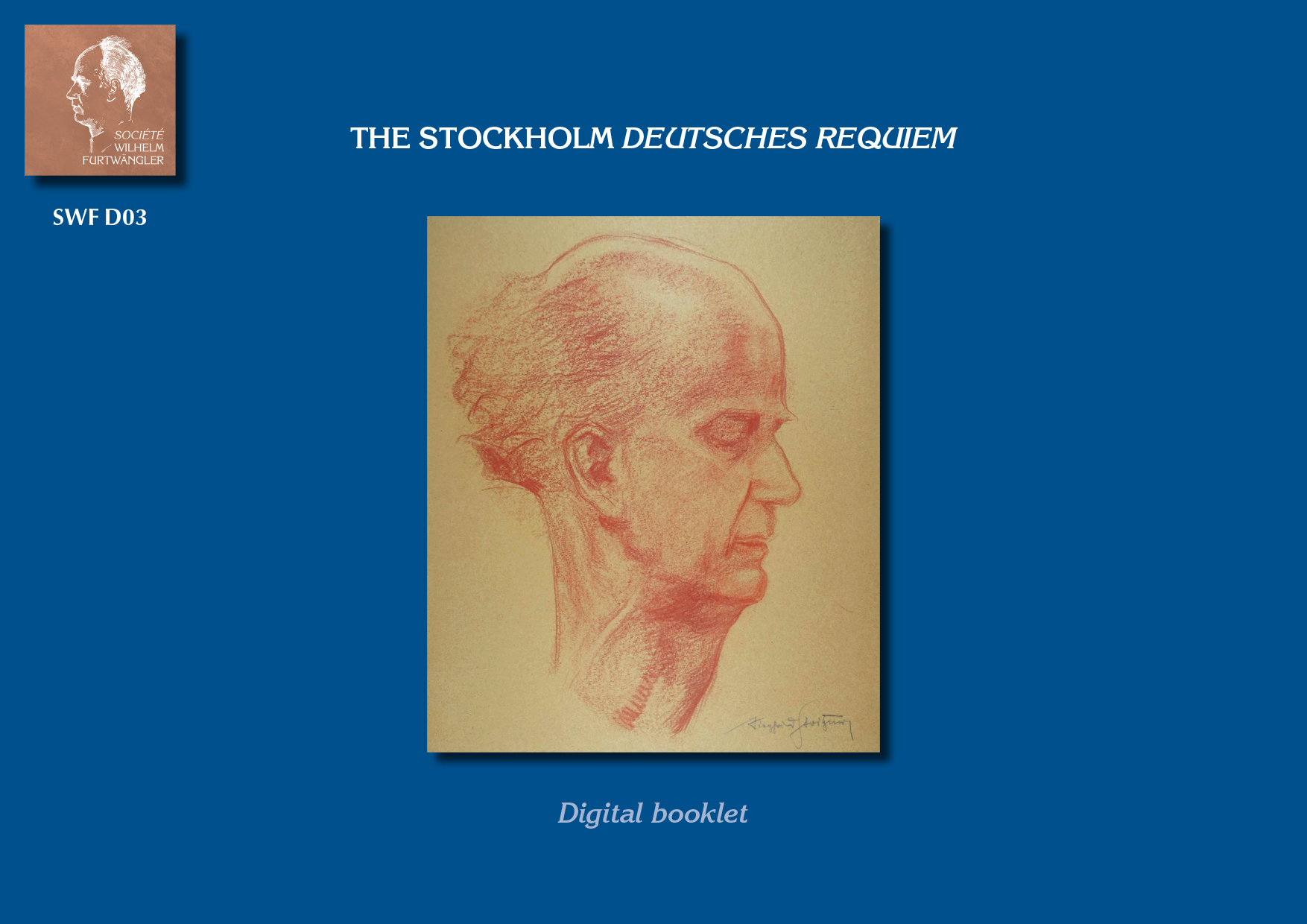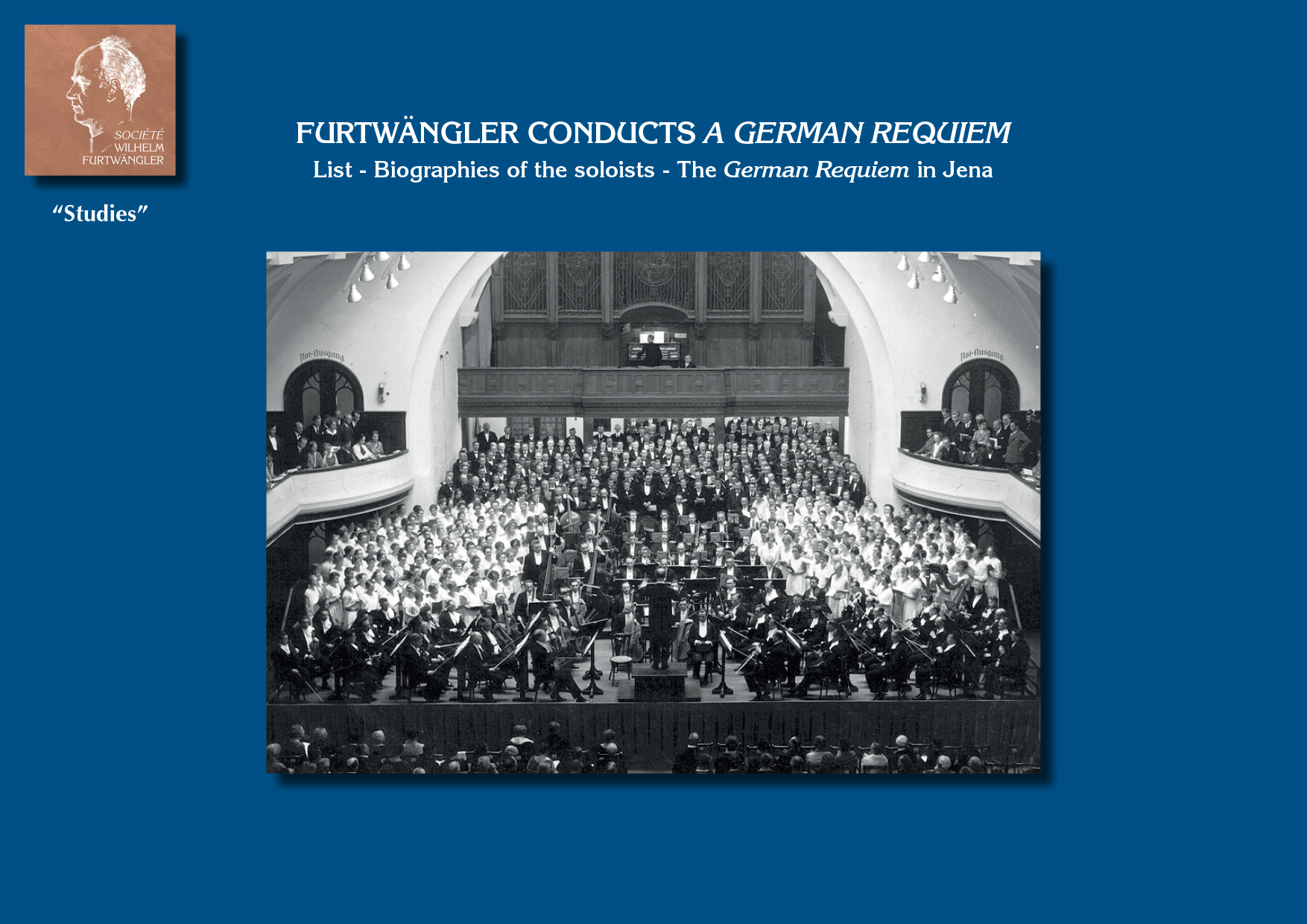News
Some members have had difficulty downloading the Deutsches Requiem.
The problem seems to come from the slowness of our server, no doubt more used to chansonnettes in mp3 than a long requiem in 24/96. However that may be: rather than writing a shortcut for the Requiem, we have changed the server.

A few weeks ago we posted a paper circular (to those who have decided to stay with paper), and now a faithful Swiss member has sent us some circulars from a while back, 1999 and 2000 to be precise.
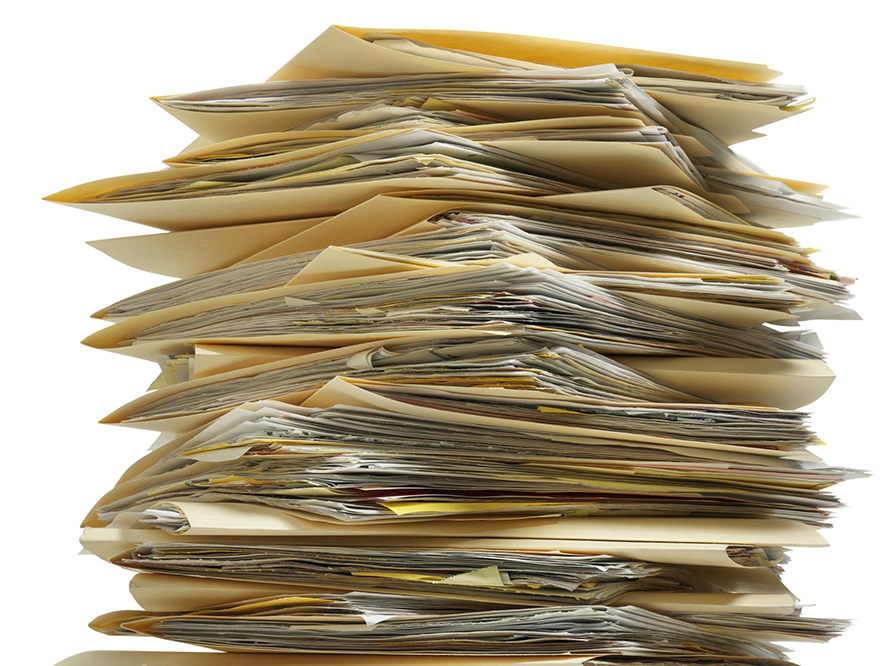
This is the perfect opportunity to repeat our appeal, notably to our older members: we still have gaps in the long series of newsletters. We lack in particular the documents from 1973 to 1979.
It would be great to be able to start off our fiftieth anniversary with our archives complete!
We remind everyone that we limit the edition of the paper circular to those who request it. It merely contains the elements that appear on our website.
In October 1947 Furtwängler conducted an opera for the first time in more than three years! And it was Tristan und Isolde at the Berlin Staatsoper, now established in the Admiralspalast following the destruction of the opera house ‘Unter den Linden’.
He was well supported by faithful singers such as Ludwig Suthaus, Erna Schlüter and Gottlob Frick, yet also by a female stage director well acquainted with the world of Wagner, the soprano Frida Leider. As for the decorator Lothar Schenk von Trapp, he was one of those who brought new blood to the scenography. And since the recording has survived from this evening of 3 October, though without the first act, we shall have to be satisfied in this connection with a picture: the scenery for Tristan’s ship.
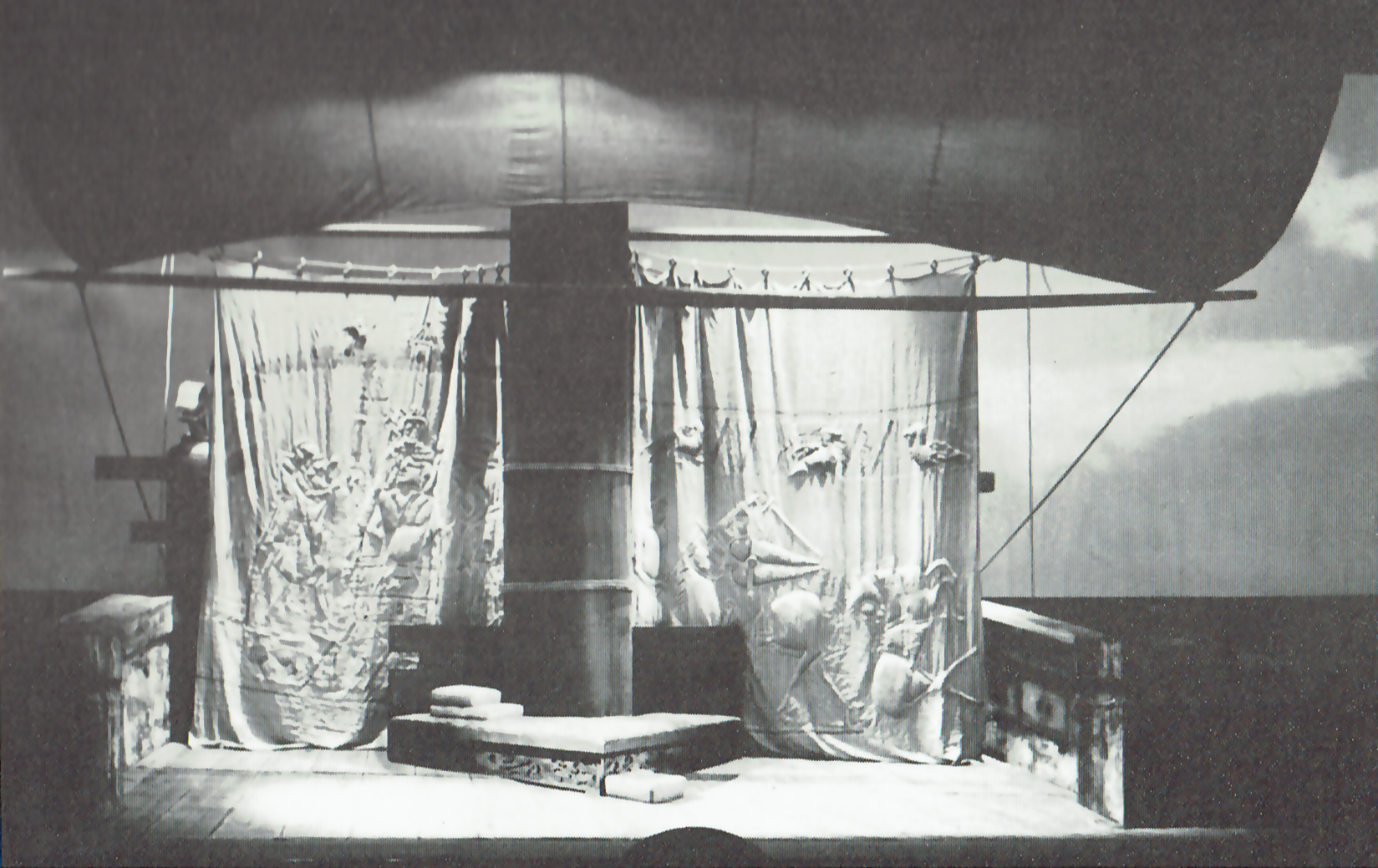
The facsimile of the programme also reveals the economic situation in Berlin at the time: it has only a pretty meagre four pages...
We have the almost complete list of Furtwängler’s concerts. Yet we also have, through online documentation or through the acquisition of documents, some printed programmes. And there is sometimes a surprise, for example a last-minute programme change. This is the case with a concert in New York, where Furtwängler withdrew from a work… The reason? Read the attached pdf document and you will be astonished.
We announced it more than a month ago; today is the day we offer on our site, to be downloaded by our members, a monument in Furtwängler’s discography: Brahms’ German Requiem, as recorded by Swedish Radio on 19 November 1948.
At last restored to high definition, with an exceptional dynamic and a clarity of sound that enables all the details to be heard, here is a performance imbued with truly elegiac depth. The press reports, translations of which are reproduced in the booklet, insist on the serene wisdom that emerges from Furtwängler’s reading. To be sure, he does not back away from the spectacular character of certain passages (in the second and sixth movements notably), yet this immense funeral cantata takes on its veritable dimension in the ‘soft’ passages, such as the intermediate movements. And as for the last movement, it is a door open onto a beyond that becomes a reconciliation with death.
We emphasise the unique aspect of this production, not just because of the high definition but no less for the unparalleled editorial scope: the facsimile of the programme and a very copious and extensively documented booklet, for which we once more thank our Swedish friends.
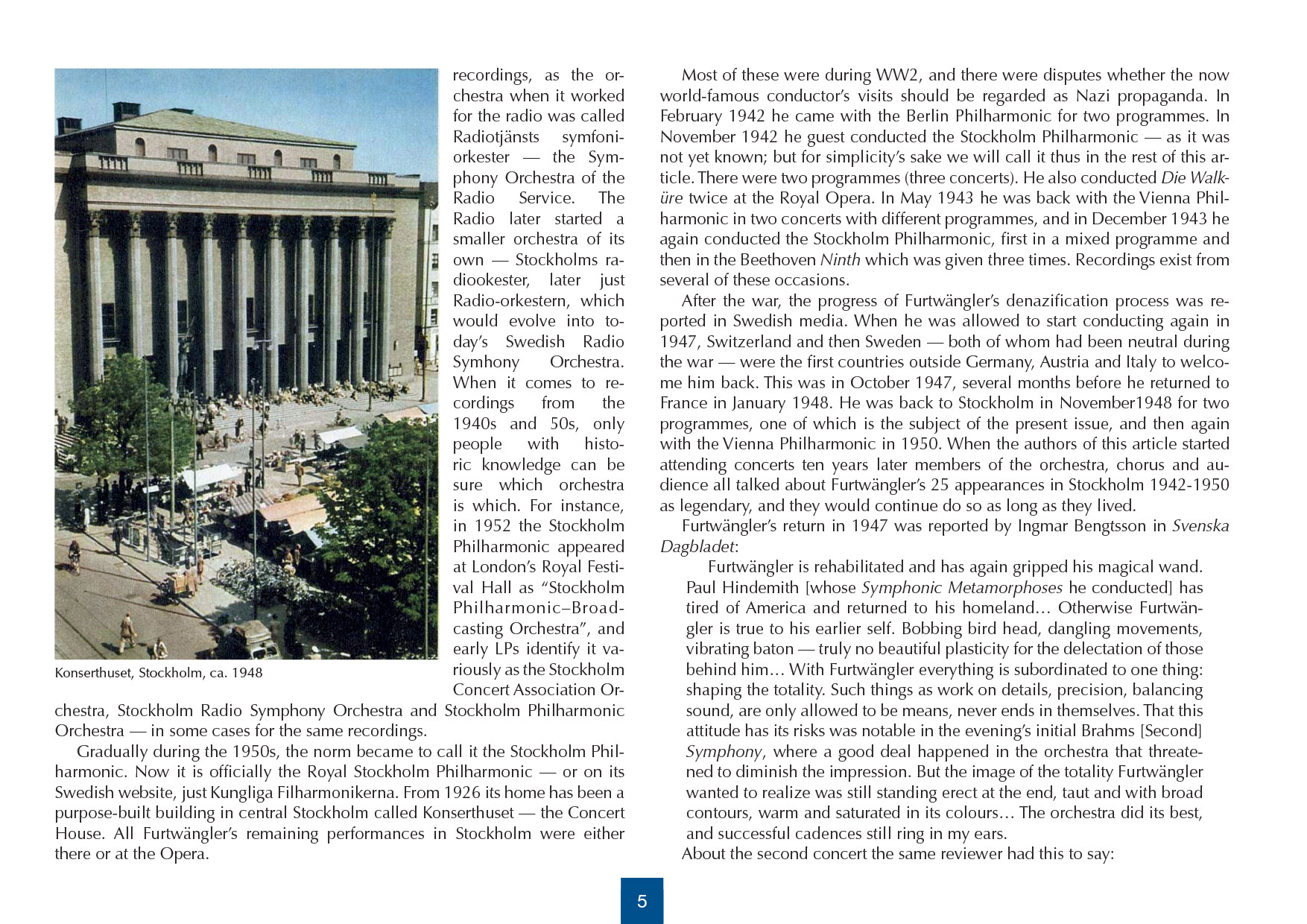
The preparation of the release (19 October) by the SWF of the Stockholm German Requiem is also an opportunity to make a few points about the performances of this masterpiece under the baton of Furtwängler.
A few surprises discovered in the course our research:
— though he conducted the work a good number of times in Vienna, it was always with the Symphonic Orchestra (or its predecessor), never with the Philharmonic;
— he conducted it only a few times in Berlin, even though it was there that he had available to him one of his favourite choruses, that of Bruno Kittel;
— his position within the Brahms Gesellschaft enabled him to programme the Requiem three times at great Brahms festivals: Heidelberg in 1926, Jena in 1929 and that of the centenary, in Vienna in 1933;
— he never recorded the work for a disc, Walter Legge (EMI) preferring Karajan after the performances in Lucerne and Vienna in 1947. Happily, there are the radio recordings.
We offer you a small study (English version) consisting of the list of these concerts, a concise biography of all the soloists, and a more detailed portrayal of the Jena performance in 1929.
An association is unlike any other enterprise. It relies on volunteer cooperation, in particular with regard to deliveries. Consequently, and until 9 November, we cannot guarantee the postal delivery of our CDs. So, if you place an order, please be patient!

On the other hand, downloading is in no way handicapped by a lack of manpower. So make a note: 19 October for Brahms’ Requiem!
It has become ever more difficult to find a space in Paris suitable for our lectures — one of the SWF’s main activities since 1969 — the reason being the demands of the owners with regard to availability and price.
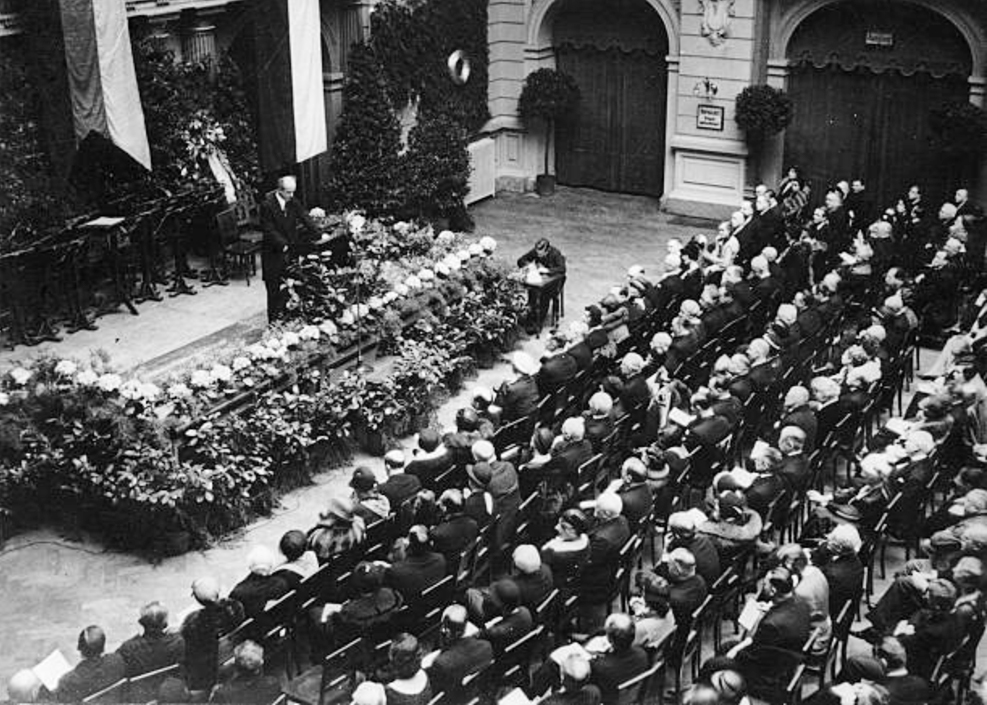
This is why we have still not been able to present to you the programme of the new season.
At the same time, and with the double objective of conforming to our time and offering such moments to all our members, we are studying the possibility of making some podcasts available to all our members, francophone or not.
We are going to produce a ‘pilot’ podcast that will be tested by our management team before general release. So, please be patient! Thank you.

So it is on 19 October that the Stockholm recording of the German Requiem will be available for downloading.
As a foretaste here are three extracts:
– Part of the conclusion of the first movement (from bar 144);
– The orchestral transition with its phenomenal crescendo (bar 42) in the second movement;
– An extract from the fourth movement (from bar 24).
Technical constraints have obliged us to offer you these extracts in CD quality. We leave you to imagine how it will all sound in high definition 24/96!
Drawing from the collection — that seems inexhaustible — of Kosuke Hiyama, the Japanese society, The Wilhelm Furtwängler Centre of Japan, has released a new CD.
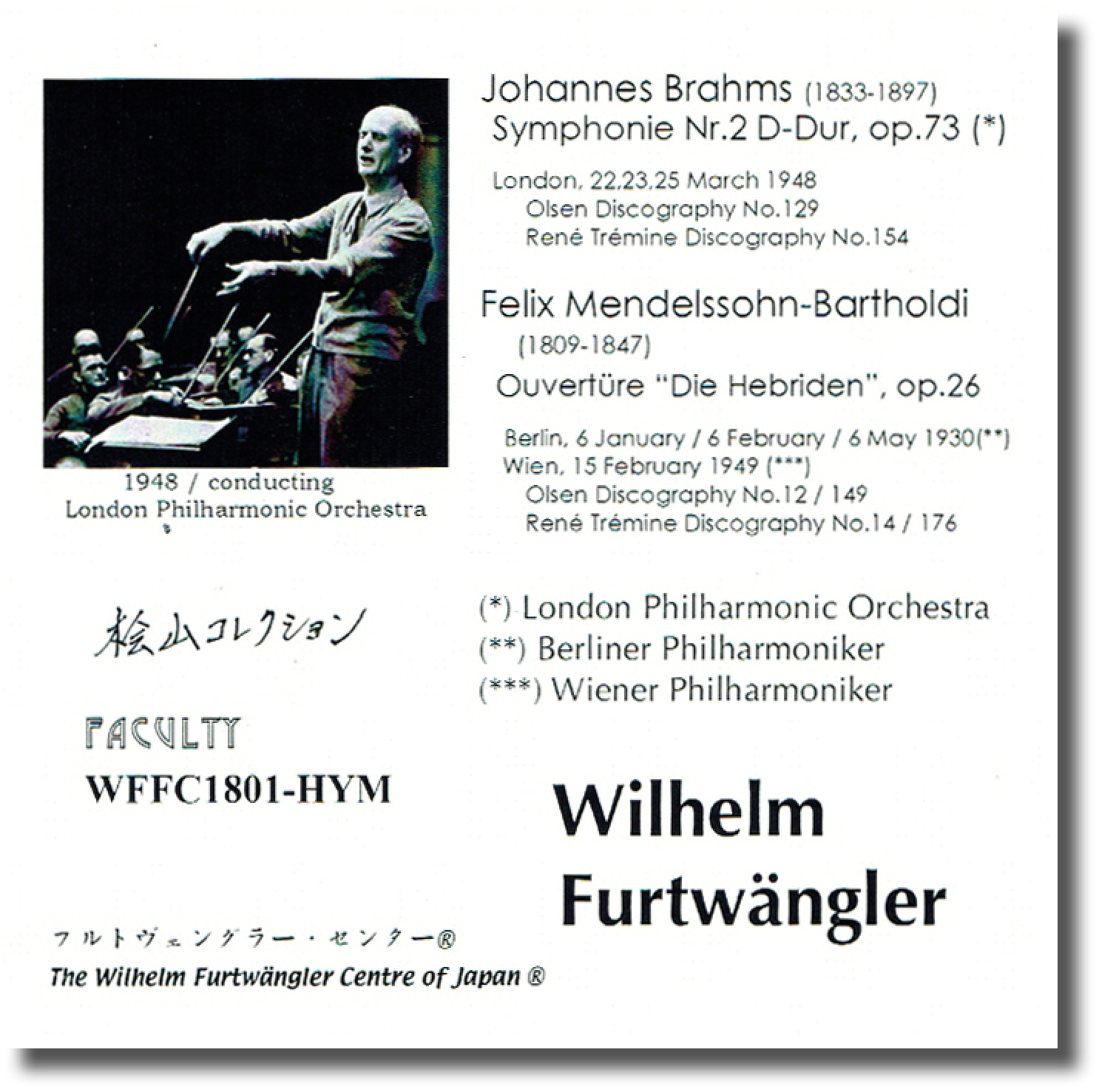
It has the reference WFFC1801-HYM and offers:
– Brahms’ Second Symphony in the Decca recording of March 1948 with the London Philharmonic,
– four alternative, rejected takes of the same recording,
– Mendelssohn’s Hebrides Overture in the Polydor release of 1930 (BPO),
– the same work in the VPO recording of 1949 for EMI.
Our partners have avoided, this time, presenting the sides of the 78 discs separately and unedited; we therefore have the works in their continuity
We know that this Second Symphony of Brahms is little appreciated, despite its qualities. It is true that the recording sessions did not go especially well, Furtwängler intervening in the balance, not necessarily for the good… At least we have here an excellent recording that means we can make up our own minds.
Furtwängler was always at ease with the effervescent romanticism of Fingal’s Cave, to use the other name of Mendelssohn’s Hebrides Overture — one that is more evocative for those who have visited this impressive part of the Scottish coast. The transfers were most seriously effected.
We have ordered for you a certain number of copies.
This CD has a price of 12 €, and will be available from 30 September from our shop.
The publication of the facsimile of the programme for the concert in Berlin on 7 February 1943 (Sibelius and Brahms) serves to remind us that the concerts of that period in the capital of the Third Reich no longer presented many great soloists.
They were elsewhere: abroad in the case of those who had gone into exile, confined to their occupied countries (although some of these did make the journey...), or not daring to travel to a city where the flames of incendiary bombs burned more brightly than the stars of music…
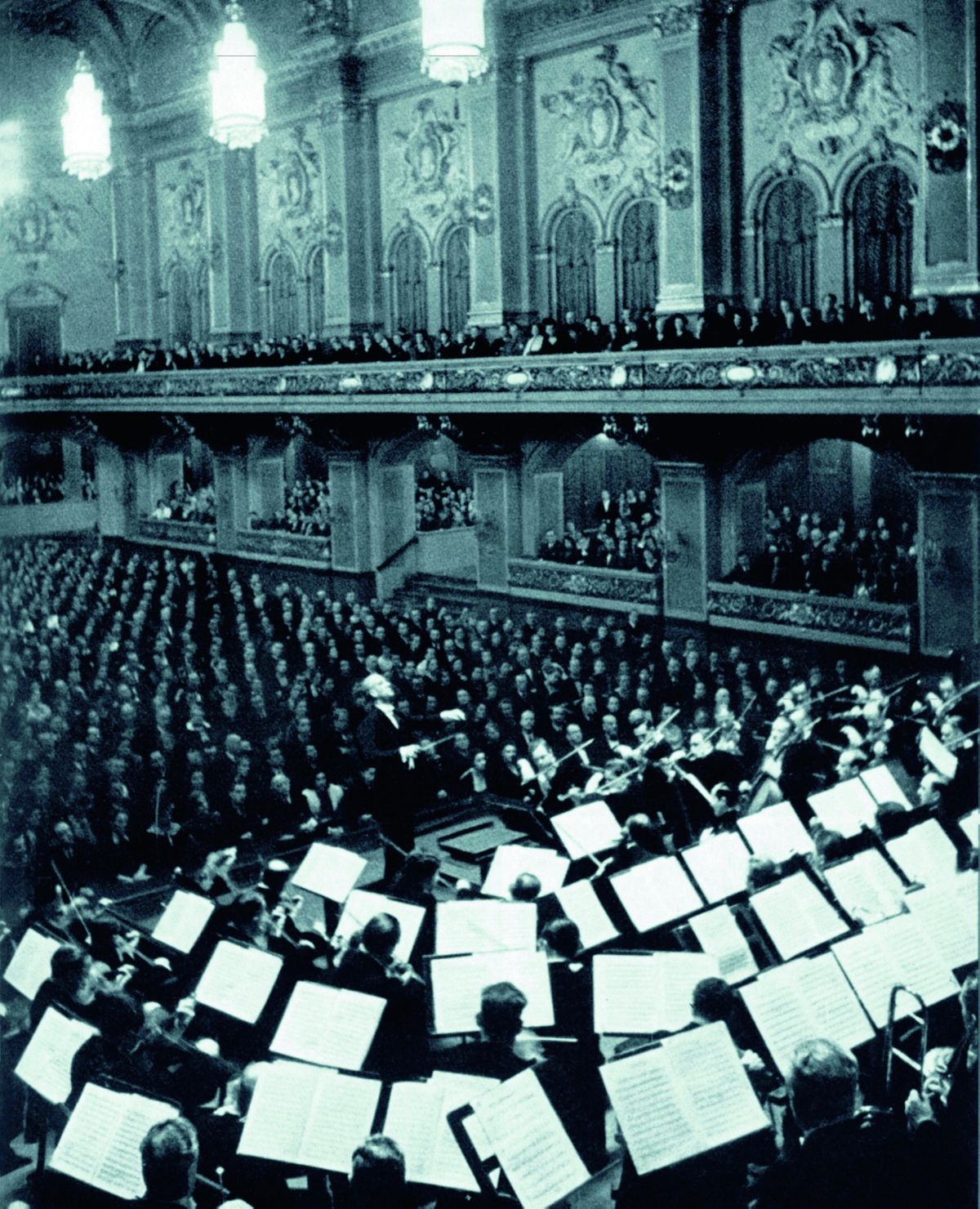
In five weeks from now our new production will be available to download, after the Ninth of 1942 and the Eroica of 1952 which have just been posted online.
This new reference (SWF D03): Brahms’ German Requiem, performed in Stockholm in November 1948.
Connoisseurs know it already: we have only three documents of Furtwängler’s performance of this masterpiece. More than 20 years ago the SWF republished the Lucerne concert of 1947; a magnificent and moving reading, yet one that required listeners to have “ears of faith”, so precarious was the sound. Let us forget the recording, incomplete in any case, of Vienna 1951: none of the performers seems to be at their best. There remains the recording of the concert in Stockholm on 19 November 1948 — the third concert of the series. We have known of this for more than 40 years, or rather we thought we knew it in re-releases that ranged from the dreadful to the just about passable. It was essential that the SWF tackle the issue, yet only by showing itself to be exemplary so that at last you could appreciate the greatness of this performance at its true value.
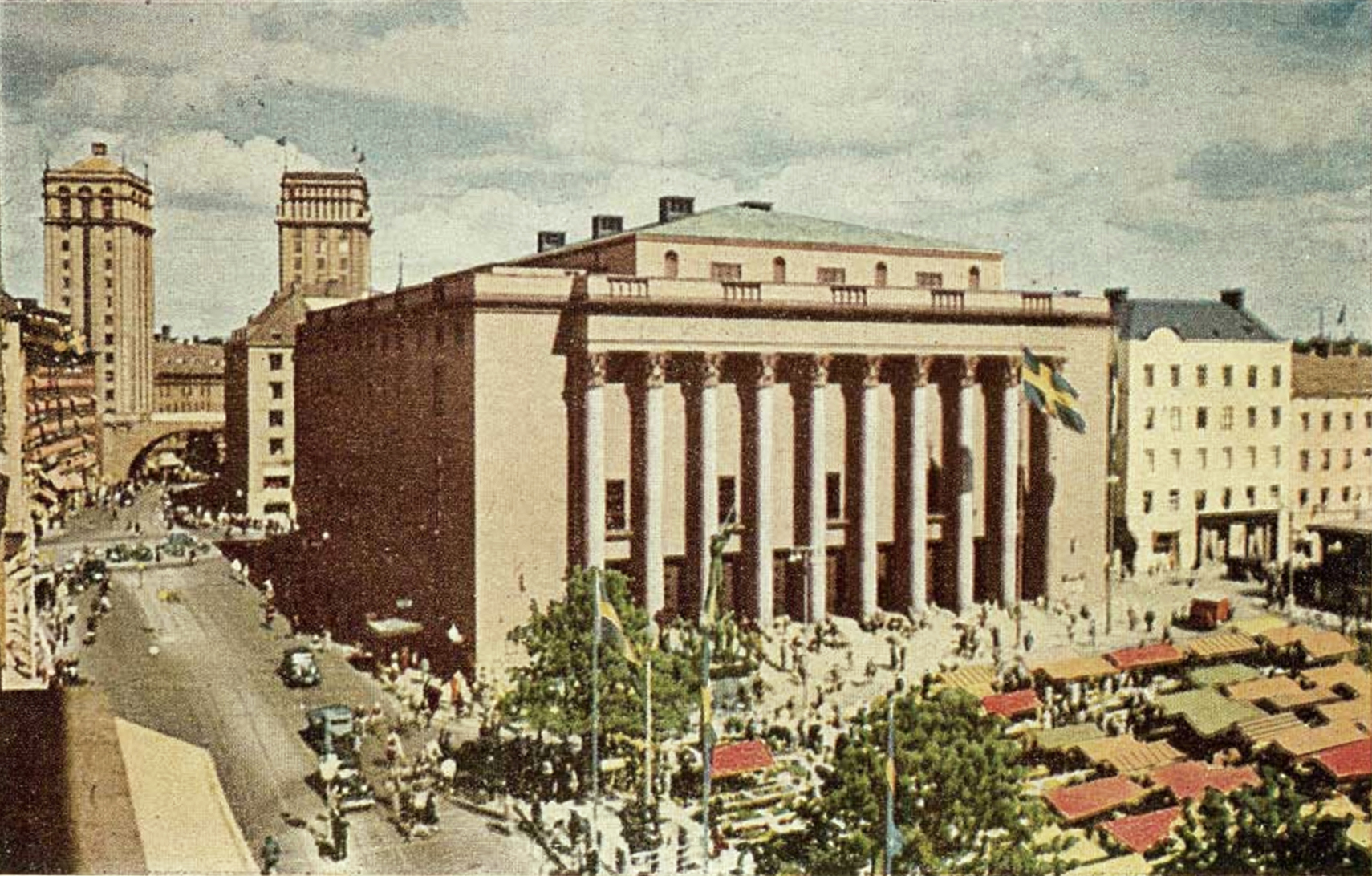 Konserthuset in 1948
Konserthuset in 1948
In order to do this, we asked Swedish Radio for a high definition copy from its archive. This was then entrusted to the studio Art et Son — Christophe Hénault —, who, by going beyond his skilful work in reducing the background noise and appropriately equalising the tone-colours, gave the sound its full potential with, notably, a phenomenal and hitherto unexampled dynamic, and a transparency that brings out the choral sections. The German Requiem is above all a vocal work, and the choral sections carefully prepared by Johannes Norrby are a constant reminder of this, supported as they are by an attentive orchestra, with the contributions of two excellent soloists, albeit they are relatively little-known outside Sweden: Kerstin Lindberg-Torlind and Bernhard Sönnerstedt.
It is in this kind of re-release that high definition, 24/96, finds total justification, highlighting tiny details, yet also giving life to the musical texture. That said, the digital pack includes the same files in ‘CD format.
Two Swedish correspondents, Nils-Göran Olve, the son of an orchestral violinist who took part in these evenings, and Göran Söderwall, a member of the SWF, offered to prepare one of the most copious booklets we have ever presented. Not only have they drawn up a table of the relationship of Furtwängler with the Orchestra and the context of these evenings, but they have also translated for us all the dithyrambic press articles that appeared on the morrow of the concert!
We have added the biographies of the performers, the list of the orchestral musicians, the trilingual texts of the Requiem, and a facsimile of the programme. The booklet is offered in two versions, French and English, illustrated with some rare iconography.
In order to achieve this result, we have been able to count on the help of the Royal Philharmonic Orchestra and Chorus of Stockholm, who responded with great generosity to our solicitations. Along with Swedish Radio and our two Swedish correspondents, may they here receive our most grateful thanks.

